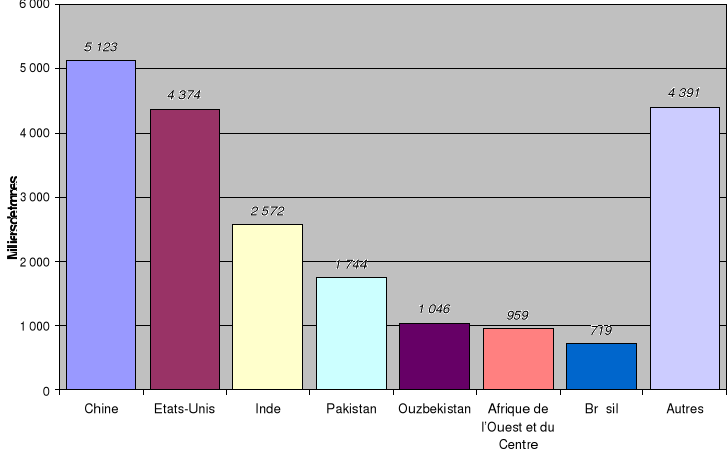I.2.2.
Production de coton
I.2.2.1.
Production mondiale et principaux producteurs
Le coton est cultivé dans de nombreux pays mais, 90% de
la production globale est récoltée dans
l'hémisphère nord. Son commerce porte surtout sur le coton fibre.
Sa production estimée à 3,2 millions de tonnes en 1900 (voir
tableau précédent), fluctue actuellement entre 18 et 21 millions
de tonnes.
Les principaux pays producteurs sont : la Chine avec une
part de 24,5%, les Etats-Unis (20,9%). Ensuite viennent l'Inde (12,3%), le
Pakistan (8,3%) et l'Ouzbékistan (5%). L'Afrique de l'Ouest et du Centre
(AOC) arrive en sixième position avec une production de près de
960 000 tonnes, soit près de 5% de la production mondiale.
Graphique 2 : Principaux pays producteurs de coton fibre
en 2001/2002

Source : Comité consultatif
international sur le coton, Perspectives cotonnières et nos
calculs
| 


